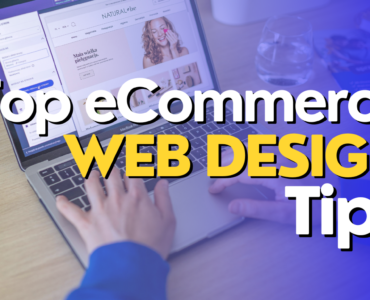Top 10 Benefits of a Professional Website for Small Businesses
Small businesses need a professional website to grow in today’s competitive online world. While a basic online presence may have sufficed in the past, today’s consumers expect more. They seek not only information but also a seamless and engaging experience. This blog covers the top 10 benefits of a professional website for small businesses. It can drive growth, boost brand identity, and give a competitive edge.
1. Establishes Credibility and Trust
Small businesses gain a significant advantage with a professional website. It can establish credibility and trust. In a world where first impressions often occur online, your website is the face of your business. Research shows that 75% of users judge a company’s credibility based on its website design. A site that appears outdated or is poorly constructed erodes customer trust. They may choose to take their business elsewhere.
A professional website shows your business is reliable and committed to quality. It shows you’ve built a platform that exceeds customer expectations. This is vital for small businesses. They may lack the brand recognition of larger competitors. A polished, professional online presence can level the playing field. It will also build trust with potential customers.
2. Enhances Brand Identity
Your website is often the first contact with potential customers. It defines your brand’s image in the eyes of the people. A professional website ensures your brand’s message and values are clear. It also keeps a consistent visual identity across all pages. This consistency is key to building a strong, memorable brand. It must resonate with your target audience.
Your website should reflect your brand’s personality. It could be innovative, traditional, quirky, or professional. It should incorporate your brand’s color scheme, typography, imagery, and tone of voice. It makes your business more recognizable. It also fosters an emotional connection with your audience. In a tough market, this connection can turn a visitor into a loyal customer.
3. Improves User Experience (UX)
User experience (UX) is at the heart of successful web design. It includes everything from your site’s navigation to its load speed on devices. A professional website aims to engage users and encourage exploration. It should provide a seamless, intuitive experience.
Research shows that 88% of online consumers are less likely to return to a site after a bad experience. This shows the need to optimize your website’s UX to meet your audience’s needs. A web designer will make your site easy to navigate. It will have clear calls to action, fast load times, and a responsive design that adapts to any screen size.
Also, a good UX can lower bounce rates. It can increase the time users spend on your site. This boosts your chances of converting visitors into customers. It also helps your search engine rankings.
4. Boosts Search Engine Rankings
In today’s digital marketplace, a beautiful website isn’t enough. You must ensure potential customers can find it. This is where search engine optimization (SEO) comes into play. A professional website follows SEO best practices. It will rank higher in search engine results pages (SERPs).
SEO uses on-page and off-page strategies. These include keyword optimization, meta tags, alt text for images, and high-quality content. A web designer will ensure your site has a clean, organized structure. This will make it easier for search engines to crawl and index your pages. A mobile-friendly site with quick loading speeds boosts its Google ranking. These factors are now important in its ranking algorithm.
Higher search engine rankings boost visibility. This results in increased traffic, followed by a boost in business. For small businesses, this is crucial. It lets them compete with larger companies without a huge marketing budget.
Attracting visitors to your website is important. But, the goal is to convert them into customers. A professional website aims to convert visitors. It has strong CTAs. They guide users to buy, sign up for a newsletter, or contact you for more info.
CRO uses many strategies. They include A/B testing, user flow analysis, and optimizing CTAs for desktop and mobile users. A web designer will optimize your site for conversions. They employ direct calls to action, captivating content, and streamlined checkout processes.
Improving your website’s conversion rate can boost revenue. You won’t need to increase traffic. CRO is a cost-effective way to grow your business. This is especially true for small businesses with tight marketing budgets.
6. Provides a Competitive Edge
In a crowded marketplace, standing out from the competition is crucial. A professional website can give your small business a big edge. It can attract and keep customers with a better online experience. A well-designed website can make all the difference. It can help you compete with other small businesses and larger companies.
A good website is better than a DIY or amateur one. It has superior design and function. It’s more likely to rank higher in search results, load faster, and offer a better user experience. This can attract customers who would choose a competitor. It gives your business an edge to succeed in a competitive market.
Also, a professional website can be updated often. New content, features, and functions can keep it fresh and relevant. This keeps your business ahead and attracts new customers over time.
7. Supports Marketing Efforts
Your website is the cornerstone of your digital marketing strategy. It’s the hub where all your online marketing efforts meet. This includes social media, email marketing, and paid ads. A professional website ensures all channels lead to a well-designed, optimized site. This boosts your marketing campaigns’ effectiveness.
A professional website will have social media integration. It will let you easily share content and engage with your audience on various platforms. It will also have features like lead capture forms, landing pages, and analytics tools. They will help you track your marketing campaigns and make data-driven decisions.
Also, a professional website is essential for SEM and PPC. A good landing page can boost your PPC campaign’s conversion rate. It will improve your ROI and help you get the most from your marketing budget.
8. Facilitates E-Commerce Opportunities
Small businesses must have a pro e-commerce site to sell products online. An e-commerce site is a secure, user-friendly platform. It lets customers browse products, make purchases, and track orders. As online shopping grows, a good e-commerce site can boost sales. It can also expand your market beyond your local area.
A professional e-commerce site has features like search, filtering, and recommendations. They help customers find what they need. It also has a smooth checkout. It offers multiple payment options and strong security to protect customer data. These features improve the shopping experience and reduce cart abandonment. This boosts your sales.
Also, a professional e-commerce website is scalable. It can grow with your business. A well-designed e-commerce site can meet your needs. It will support long-term growth, whether you have a small product line or plan to expand into new markets.
9. Offers Scalability and Flexibility
As your business grows, your website needs to grow with it. A professional website is built for growth. You can add features, pages, and functions as your business evolves. This is crucial for small businesses. It keeps your website relevant and effective as your needs change.
For example, you might start with a simple website. Later, you may want to add an online store, blog, or customer portal. A professional website makes it easy to update it. You won’t have to redesign your site. This saves time and money. It also ensures your website meets your customers’ needs.
Also, a professional website is likely built on a flexible CMS, like WordPress. It lets you easily update content, add pages, and make changes without tech skills. This flexibility keeps your website a valuable asset as your business grows.
10. Ensures Security and Compliance
In today’s digital world, online businesses must secure sensitive customer data. A professional website has strong security to guard against cyber threats. It keeps your business and customers safe from breaches.
It includes using SSL certificates and secure payment gateways. Also, it requires regular updates to fix flaws. A professional web designer will ensure your site complies with relevant regulations. This includes the GDPR, which governs personal data use.
Compliance is not just about avoiding fines. It’s also about building trust with your customers. A secure, compliant website shows you value your customers’ privacy. It proves you protect their data. This can give your business an edge, especially in security-sensitive industries.
Table of Contents
ToggleConclusion
A professional website is a must for small businesses. It’s no longer optional. A professional website has many benefits. It builds credibility, improves user experience, boosts SEO, and supports marketing. A professional, well-designed website boosts your brand and gives you a competitive edge. It helps attract, engage, and convert visitors into loyal customers.
By focusing on these benefits, small businesses can build a strong online presence. It will drive growth and support long-term success. A professional website is a must for any business. It will pay off for years to come. So, whether you’re just starting or trying to grow, invest in one.
If you want to grow your small business, upgrade to a professional website. It should reflect your brand’s quality and the value you offer. Don’t let an old, poor-quality website hold you back. Invest in a professional site today and reap the rewards.
May these Questions in your mind:
A professional website ensures a consistent and clear representation of your brand’s message, values, and visual identity. It reflects your brand's personality through design elements such as color schemes, typography, and imagery, which helps create a strong, memorable impression on visitors.
A professional website follows SEO best practices, including keyword optimization, meta tags, and high-quality content. It also features a clean, organized structure that improves crawlability for search engines. These factors help your site rank higher in search results, increasing visibility and traffic.
A professional website serves as the hub for all digital marketing activities, including social media, email marketing, and paid ads. It features integration tools, lead capture forms, and analytics to track and optimize marketing campaigns, enhancing overall effectiveness.
A professional website is designed to grow with your business. It allows for the addition of new features, pages, and functions as your needs evolve. Built on flexible content management systems (CMS), it enables easy updates and changes without requiring a complete redesign.
Security and compliance are essential for protecting sensitive customer data and maintaining trust. A professional website includes SSL certificates, secure payment gateways, and regular updates to address vulnerabilities. Compliance with regulations like GDPR ensures customer privacy and helps avoid legal issues.
More Post:
For Our Services:
Related Posts
Recent Posts
- Maximizing Dental Insurance Reimbursements: A Step-by-Step Guide
- How to Scale Your Dental Practice Without Sacrificing Patient Care
- 10 Proven Tactics to Keep Patients Returning to Your Dental Practice
- Practical Tips for Dentists to Overcome Marketing Stress
- Key Differences in ROI: Email Marketing vs. Copywriting
Recent Comments
Categories
- Advertising(2)
- Branding(3)
- Dental Marketing(4)
- email marketing(1)
- Marketing(7)
- Social Media(1)
- Videography(1)
- Web Design(1)
- Website traffiking(1)







Comments (3)
binance konto
Thanks for sharing. I read many of your blog posts, cool, your blog is very good. https://www.binance.com/pl/register?ref=UM6SMJM3
Registrera dig
Thanks for sharing. I read many of your blog posts, cool, your blog is very good.
ustvarite racun na binance
Can you be more specific about the content of your article? After reading it, I still have some doubts. Hope you can help me. https://accounts.binance.info/ES_la/register?ref=VDVEQ78S